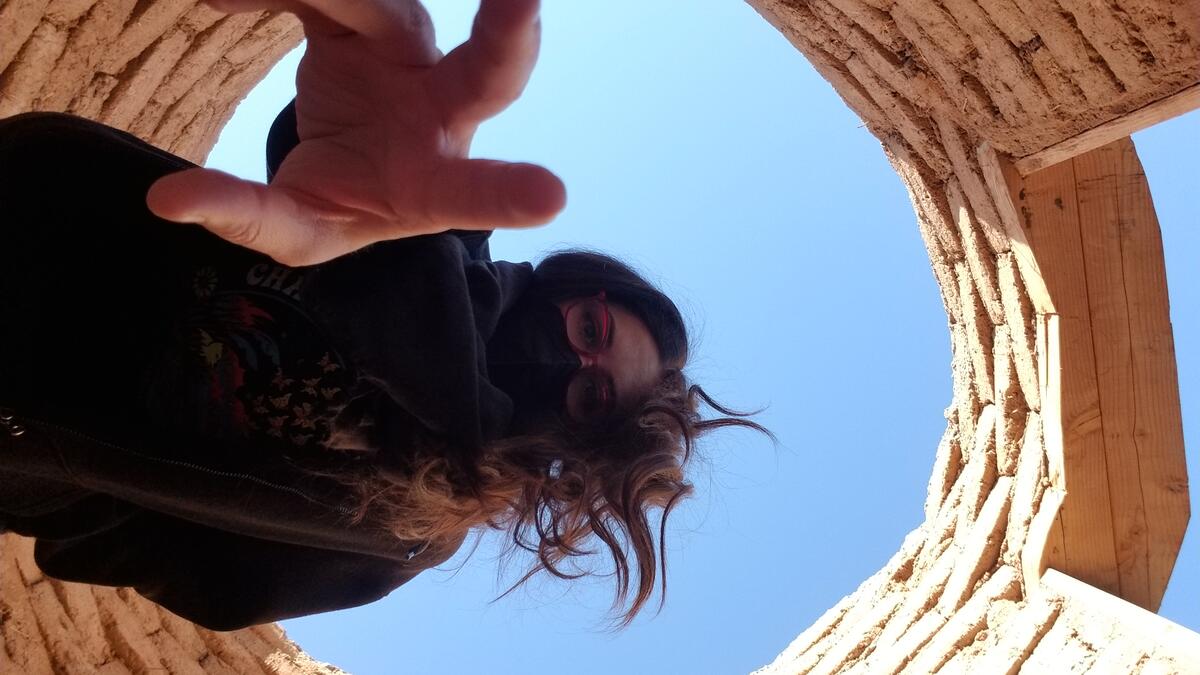Scholar, artist brings new meaning to desert places

The ASU Social Transformation Lab will host scholar and author Celina Osuna as its Postdoctoral Scholar Lecturer for a talk titled "Desert Distortion" on Thursday, Jan. 26. Photo courtesy Celina Osuna
If you Google image search the word “desert,” you’ll find a series of glamorized yet homogenous landscapes of sand dunes, mountains, open sky — and a significant lack of people.
Scholar and author Celina Osuna works to understand the relationships between these perceptions and their connection to lived experiences and land use of deserts.
On Thursday, Jan. 26, the Social Transformation Lab at Arizona State University will host Osuna as its Postdoctoral Scholar Lecturer for a talk titled "Desert Distortion." The talk will explore Osuna's current research on the aesthetics of desert places in literature, art and film, and their impact on cultural imagination and geopolitical relationships to land, with an emphasis on Indigenous and Latino environmentalisms.
Registration for the event is now open.
Born in El Paso, Texas, Osuna is a student of desert places. She’s one who sees the Valley as a vast and beautiful place, but knows there is more to it than what meets the eye.
In a challenge to "desert-as-void thinking," Osuna’s talk will explore the reciprocal bonds between place, stories and animacies that reveal the multiplicity and possibility of desert places by turning to the poetry of three Indigenous women writers — Ofelia Zepeda, Leslie Marmon Silko and ASU's own Natalie Diaz.
Through close readings and an interdisciplinary analysis bridging the environmental humanities and Indigenous studies, Osuna employs desert distortion to emphasize story as an epistemological practice.
Her monograph "Desert Distortion" is under contract with Texas Tech University Press and explores distortion as a desirable technique emerging from entanglements with desert places — their stories, material conditions and representations — through which we as humans become better kin to our other-than-human relatives and each other.
More Arts, humanities and education

Grammy-winning producer Timbaland to headline ASU music industry conference
The Arizona State University Popular Music program’s Music Industry Career Conference is set to provide students with exposure to…

ASU Gammage brings the best of Broadway to the 2025–26 season
ASU Gammage has announced its 2025–2026 Desert Financial Broadway Across America-Arizona season with a lineup of Broadway shows…

March Mammal Madness hypes science, storytelling in the classroom and beyond
In classrooms throughout the country, the buzz around March Mammal Madness starts long before the tournament begins. For…